走逛台北國際書展 (二) / Roaming around the Taipei International Book Exhibition (Part 2)
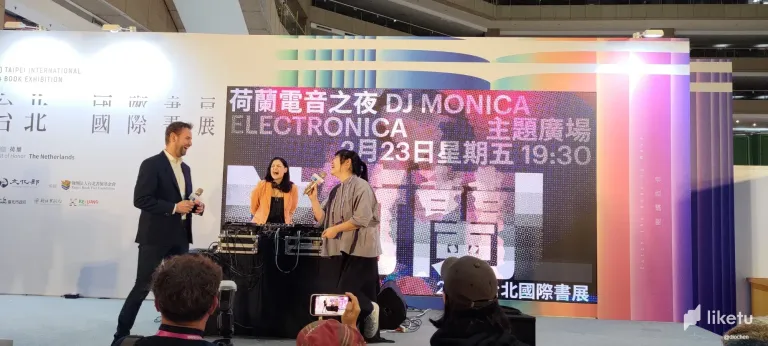
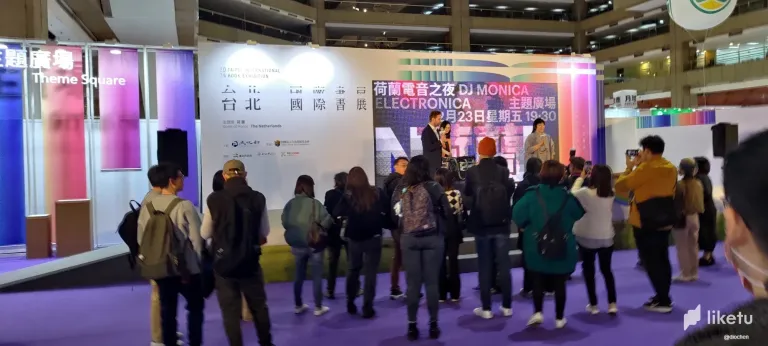
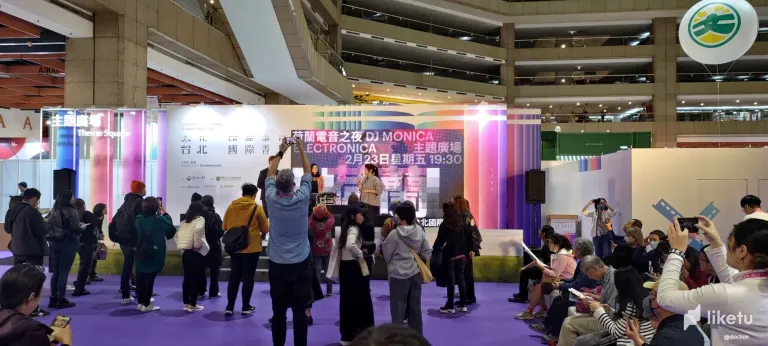
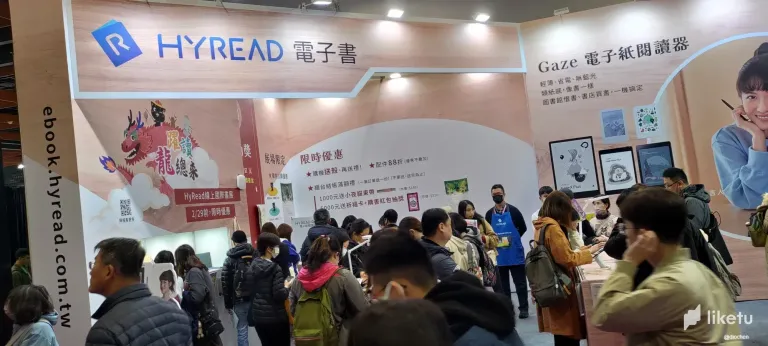
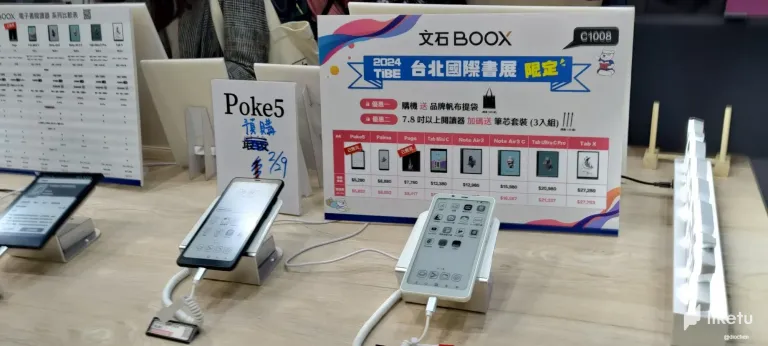
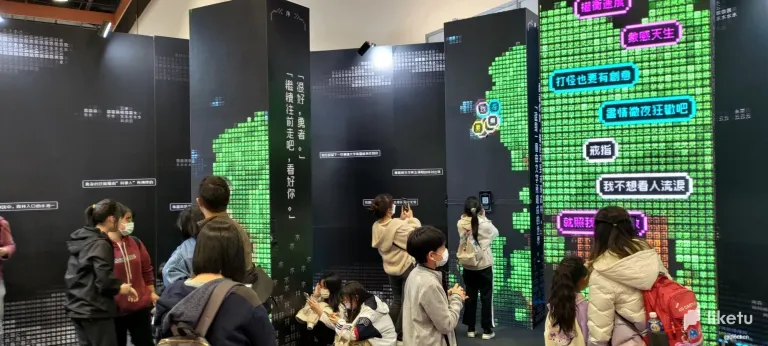
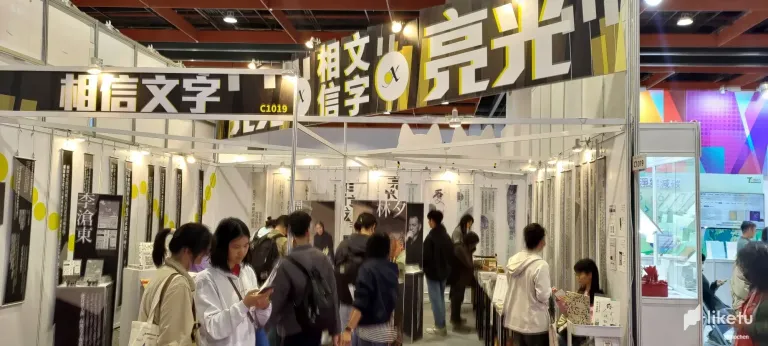
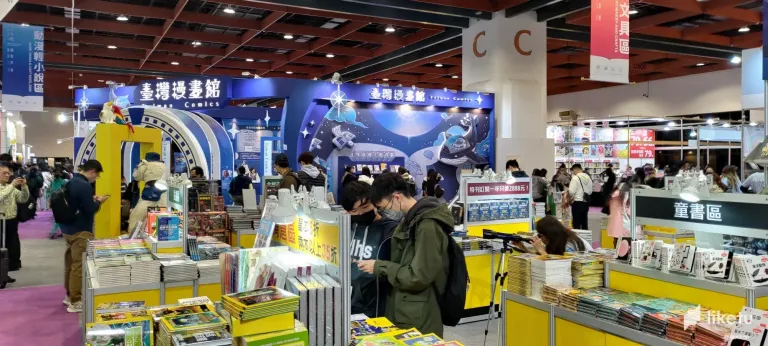
今年的國際主題區是荷蘭,當提及荷蘭時,您的第一印象是什麼?我猜,大部分的人可能會提到鬱金香、風車與木屐等,沒錯,荷蘭以其繽紛的鬱金香花海聞名於世,此外,當年我在學習經濟學時,老師提到了一個經典教案,被稱作鬱金香狂熱,它是是世界上最早的經濟泡沫事件,在鬱金香初傳到荷蘭時,因為美麗又稀有,成為富有階層們用來炫富的好標的,吸引大批荷蘭投資者的湧入,把鬱金香的市價炒得非常高,特殊的鬱金香球莖價錢甚至等同於一輛小型輪船或一棟房子,突然某天,市場上不再有人願意出價購買鬱金香,至此鬱金香的泡沫終於破了,一大堆人傾家蕩產,我對這故事,印象深刻,也記住了荷蘭,這個國家。
主題廣場,就在會展入口附近,並沒有擺設椅子,反而是留下一塊空間,看板上寫著荷蘭電音之夜,原來荷蘭還以電音出名,我還真的不知道,後來在網路上查了一下,才知道荷蘭的電音文化有其豐富的歷史,荷蘭在20世紀80年代就開始了對電音的探索和推廣,當時的地下派對和夜店成就了後來盛行的電音文化,而只要是荷蘭出產的 DJ,可以說都是品質保證,在百大 DJ 全球排行榜上,荷蘭的 DJ 常常名列前茅,這次書展請來的荷蘭 DJ Monica Electronica,主導電音之夜活動,期望能夠擦撞出火花,但是由於現場多是喜好靜態閱讀活動的愛書人,儘管震耳欲聾的音浪襲來,在會場內能夠隨著音符搖擺的靈魂不多,可以說是很少,大多數的人都在旁邊看戲,哈,我也是其中看戲的一員。
撇開電音之夜活動,書展還邀請了荷蘭第一位拿下雨果獎最佳中篇小說獎的作家 Thomas Olde Heuvelt,被荷蘭國家報紙譽為「2019年荷蘭文學天才」的 Radna Fabias,著名的兒童作家 Bibi Dumon Tak 以及繪本插畫家 Charlotte Dematons 等,可以說是誠意滿滿,還以「1624」、「多樣性和包容性」、「荷蘭設計和永續發展」等議題,呈現共同的歷史、現在和未來,我們的第一次接觸是從1624年,荷蘭登陸台灣南部開始,之後就慢慢地進入世界的舞臺,在多樣及包容性上,有著同樣的步調,永續發展是全人類的共識。
根據我這幾年來書展上的觀察,電子書閱讀器的攤位是越來越多,占地是越來越大,可見的數位閱讀趨勢已成,接受電子書閱讀器的民眾越來越多,讀墨是比較老牌的電子書閱讀器品牌,聽說忠實用戶不少,我記得前幾年,我也是在書展上有體驗一下,今年體驗的結果,感覺並無太多新意,應該是勝在品質穩定,Pubu是一家我沒聽過的品牌,比較特別的是,已經把ChatGPT 整合進它的系統內,感覺應該可以持續升級,提供更好的體驗,文石是一家,我有聽過的品牌,可能是有朋友曾經推薦給我過吧,它的售價還蠻吸引人的,雖然早就是數位時代了,不過,我還是沒使用電子書閱讀器的習慣,看書的話,我還是習慣看紙本的書。
This year's international theme area is the Netherlands. When people mention the Netherlands, the first things that come to mind are probably tulips, windmills, and wooden clogs. The Netherlands is famous for its vibrant tulip fields. Besides, when I was studying economics, my teacher mentioned a classic case called the "Tulip Mania", which was the world's first recorded economic bubble. When tulips were first introduced to the Netherlands, they were considered rare and beautiful, becoming a status symbol for the wealthy. This led to a frenzy of tulip bulb trading, with prices skyrocketing to the point where a single bulb was worth as much as a small ship or a house. Suddenly, one day, the market collapsed as people stopped willing to pay high prices for tulips, resulting in financial ruin for many. This story left a deep impression on me and made me remember the Netherlands.
The theme plaza, near the entrance of the exhibition hall, didn't have chairs but instead left space for an event called "Dutch Electronic Music Night". I didn't know that the Netherlands was also famous for electronic music until then. Later, I looked it up online and found out that the Dutch electronic music culture has a rich history. The underground parties and clubs in the 1980s laid the foundation for the later popularity of electronic music. DJs from the Netherlands are considered top-notch, often ranking high on the DJ Mag Top 100 list globally. Monica Electronica, a Dutch DJ, led the electronic music night event at the book fair, hoping to spark some interest. However, most people at the venue were more into quiet reading activities, so there weren't many souls swaying to the music. I guess most of us were just spectators.
Aside from the electronic music night event, the book fair also invited notable Dutch authors such as Thomas Olde Heuvelt, the first Dutch author to win the Hugo Award for Best Novella. There was also Radna Fabias, hailed by a Dutch national newspaper as the "2019 Dutch Literary Genius", renowned children's author Bibi Dumon Tak, and picture book illustrator Charlotte Dematons. They covered a wide range of topics, including "1624", "Diversity and Inclusion", and "Dutch Design and Sustainable Development", presenting a shared history, present, and future. Our first encounter began in 1624 when the Netherlands landed in southern Taiwan, gradually stepping onto the world stage with the same rhythm of diversity and inclusivity. Sustainable development is a consensus for all humanity.
From my observations at the book exhibition over the years, I've noticed an increasing number of booths showcasing e-book readers, indicating the growing trend of digital reading. More and more people are accepting e-book readers. Readmoo is a well-established brand in the e-book reader market, known for its loyal users. I remember trying it out a few years ago at the book exhibition. This year's experience didn't bring anything particularly new, but it seems to excel in providing stable quality. Pubu is a brand I haven't heard of before, but what's interesting is that they've integrated ChatGPT into their system, suggesting ongoing upgrades for better user experiences. Boox is a brand I've heard of, probably because a friend recommended it to me before. Its pricing is quite attractive. Even though we're in the digital age, I still prefer reading physical books rather than using e-book readers.
For the best experience view this post on Liketu
看纸书比较的舒服👍👍
同意 😀